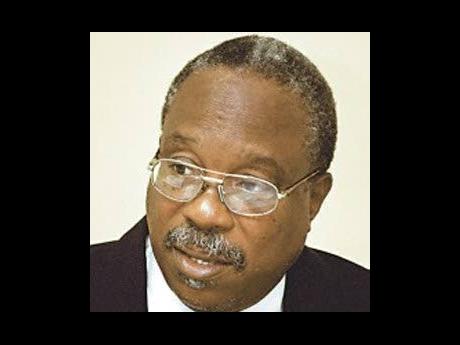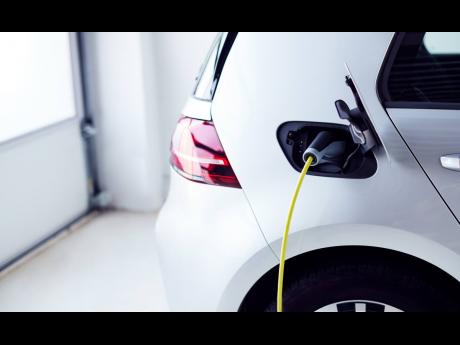Dennis Minott | UWI: an oasis of green sprouts threatening oily desert
THE UNIVERSITY of the West Indies (UWI) Mona is undeniably leading a charge in electric vehicle (EV) technology and sustainable transportation in the Caribbean.
Professor Tannecia Stephenson and her team deserve commendation for their work in this critical demand-side area. Their efforts to integrate EV technology into educational programmes, coupled with strategic partnerships, could be laying the foundation for a greener, more sustainable future for the region. It is refreshing to witness a Caribbean institution proactively addressing the challenges posed by climate change and fossil fuel dependency.
However, while UWI’s focus on electric vehicles is commendable, it is essential to acknowledge that this is merely one piece of a much larger puzzle. The transition to a truly sustainable future requires a comprehensive approach that addresses both the demand and supply sides of the energy equation. Deftness in maintaining consumption is a small thing. Production for that consumption matters more.
Caribbean’s heavy and lazy, oil-guzzling addiction to petrochemicals-based electricity generation is a glaring, now clearly avoidable, overdosing vulnerability. While modern grid management systems can now quite readily and cost-effectively cope with ‘balancing’ intermittent renewable energy sources, the region must learn to lust healthily at things green: to vigorously shift its hankerings away from its dangerously debilitating daily diet of oil and yet more imported oil and gas. Investing in renewable energy infrastructure, such as solar, wind, hydro, and biomass, is imperative.
Moreover, exploring innovative energy storage solutions, including those that leverage the region’s unique energy storage potential via its often un-Europe-like, mountainous topography, is crucial for maximising the benefits of renewable energy. It is at this juncture that UWI has a unique opportunity to make a significant impact. The university’s role should not be limited to promoting EV technology; it must extend to becoming a leading authority on renewable energy research, production and efficient usage in the Earth’s humid tropical regions.
It is incumbent on academic leaders in UWI’s physics, geosciences, and other environmental units to educate its own less rigorously informed staff members, credulous as well as ‘entitled’ government functionaries, along with feigningly agog business/finance leaders about the realities of nuclear power.
DISPEL MISCONCEPTION
It’s important to decisively dispel the misconception that small modular reactors or any other nuclear technology can be transfigured by anyone’s engineering or darker designs, money-plentitude, or “acquisitiveness” into green or renewable energy in any way, shape, or form.
Dithering or timidity and kowtowing, in the face of deep-pocketed folly, hardly befits a place of higher learning. Evidence-based thinking and rigorous analysis are the hallmarks of true academic integrity. The duty to deliver in the interests of truth, our citizens, humanity, and reality is paramount.
In reality, nuclear power, while a significant energy source, does not meet the criteria for green or renewable energy due to its inherent environmental and safety concerns, the generation of radioactive waste, the potential for catastrophic failures, and the finite, depleting nature of its uranium raw materials. Furthermore, considerations of local security for potential nuclear power facilities must take into account the risks posed by bad actors.
At the risk of repeating myself, the university’s scientists and experts must be at the forefront of educating CARICOM citizens about the environmental and safety hazards associated with nuclear power, including the long-term management of nuclear waste. Accurate information dissemination is essential to ensure informed decision-making and the advancement of genuinely sustainable energy solutions. That said, UWI’s net zero energy building is a shining example of what is possible when renewable energy is prioritised. This project demonstrates that sustainable building practices and energy efficiency can be achieved in a tropical climate. The university should replicate this model across its campuses and share its expertise with the wider community.
The UWI’s potential to drive transformative change extends far beyond electric vehicles. By becoming a leading authority on renewable energy, energy efficiency, and climate change mitigation, UWI can position itself as a catalyst for a sustainable future for the entire Caribbean region. It is time for UWI to expand its vision, embark on a higher trajectory, and embrace the full spectrum of challenges and opportunities presented by the energy transition.
BOLD LEADERSHIP
The future of the Caribbean depends on bold leadership and innovative solutions. UWI has the potential to be among those at the forefront of this critical endeavour. In addition to its focus on renewable energy and electric vehicles, UWI can also play a pivotal role in fostering research and development in more sustainable agriculture and water management.
The Caribbean, with its rich biodiversity and unique ecosystems, stands to benefit immensely from sustainable agricultural practices that not only improve food security but also protect the environment. By incorporating more sustainable agriculture into its curriculum and research initiatives, UWI can help create a resilient agricultural sector that can withstand the impacts of climate change, especially cyclonic events.
The Caribbean is highly vulnerable to the effects of climate change, including more frequent and severe droughts, hurricanes, and flooding. UWI can lead the way in developing innovative water management solutions that ensure a reliable and sustainable water supply for the region. This can include rainwater harvesting, fog/cloud harvesting, wastewater treatment and reuse, and the development of efficient irrigation systems functioning within the context of micro-grids running on renewable energy. We need to move beyond what I call ‘Mickey-mousing’.
The UWI has in the past demonstrated the potential to be a beacon of hope and progress in the Caribbean’s journey towards a sustainable future. By resolutely expanding its focus beyond electric vehicles and embracing a holistic approach to sustainability, UWI can lead the way in renewable energy, energy efficiency, climate change mitigation, sustainable agriculture, water management and microgrid designs.
The region’s future depends on the bold leadership and innovative solutions that institutions like UWI can provide.
Dennis Minott, PhD, is the CEO of A-QuEST-FAIR. He is a renewable energy specialist and worked in the oil and energy sector. Send feedback to columns@gleanerjm.com


